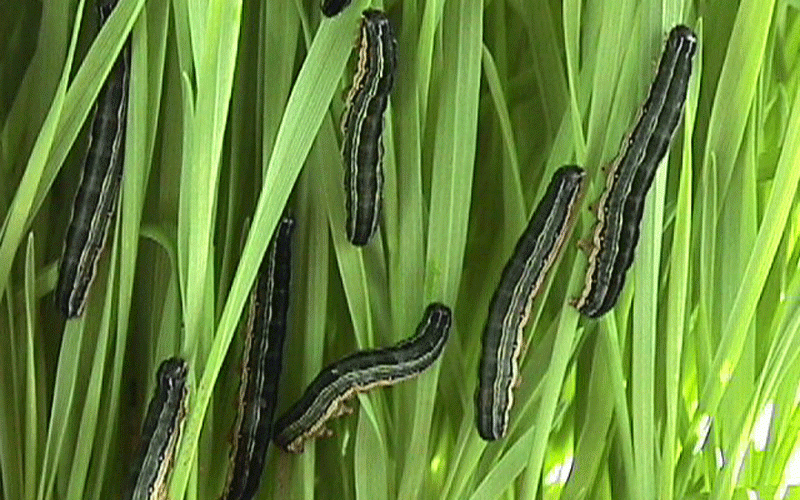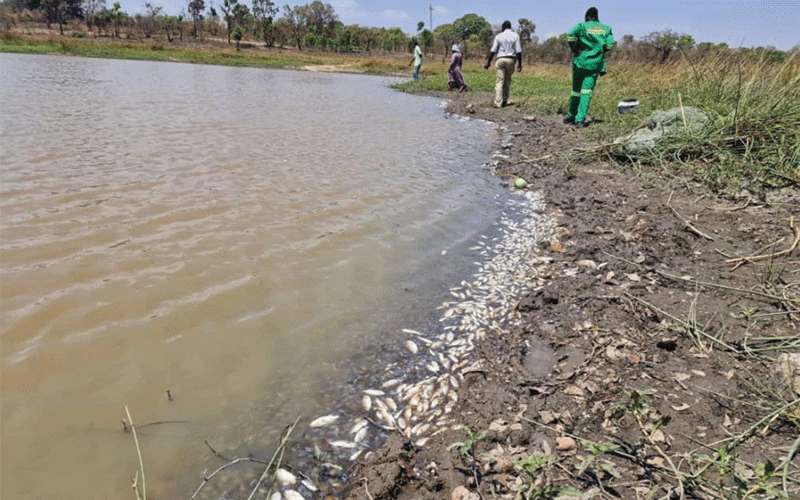
GOVERNMENT has warned farmers to be on high alert for two destructive armyworm species that are threatening to devastate crops.
Acting director for the Migratory Pests Control Department in the Lands, Agriculture, Fisheries, Water and Rural Development ministry, Shingirayi Nyamutukwa, said the African Armyworm and Fall Armyworm are the two pests that farmers should be wary of.
Nyamutukwa revealed that the ministry had established an early warning system that alerts farmers of areas at risk of outbreaks, enabling them to increase the frequency of field scouting.
“Farmers around Gokwe South (Midlands), Umguza (Matabeleland North) and Shamva (Mashonaland Central) are being encouraged to regularly scout their crop fields and pastures for African Armyworm (Spodoptera exempta) caterpillars capable of destroying cereal crops (maize, sorghum, millets) and pastures,” he said.
“This is due to high moth catches recorded from our early warning system for the period of December 14-29, 2024.”
He emphasised the importance of scouting, saying it should be done every week and insecticides should be applied once infestation levels reach 20%.
He also highlighted that the warning comes as prevailing weather conditions have led to reduced field scouting by farmers, allowing pests to multiply unchecked and threatening crop yields
“Scouting should be done every week and an insecticide should be applied once infestation levels reach 20%,” Nyamutukwa said.
- Govt warns of armyworm outbreak
Keep Reading
“The challenge with prevailing weather conditions is that, farmers tend to reduce field scouting as long as it's not raining yet pests find these warm conditions as suitable for their survival.
“In turn, crops are most affected as pests are allowed to multiply without any checks and controls.”
The government has also announced that it will provide chemicals for the control of African Armyworm free of charge.
Nyamutukwa confirmed that chemicals had already been sent to Mashonaland Central and Midlands provinces, with more to be dispatched to areas with potential outbreaks.
“For African armyworm, the chemicals are free of charge and as we speak we have sent chemicals to Mashonaland Central and Midlands provinces and will be sending to areas with potential outbreaks of African Armyworm based on our early warning system results,” he said.
The Migratory Pests Control Department acting director advised farmers to take advantage of the Pfumvudza programme, which promotes early planting, mulching and the use of lime and manure to ensure healthy plants that can tolerate pest damage.
“Effective methods for fall armyworm include early planting which is part of Pfumvudza, then combined with mulching which also attracts natural enemies of pests, while use of lime and manure ensures a healthy plant that can tolerate a certain level of pest damage,” Nyamutukwa said.
NewsDay has also observed that many farmers in Murewa are facing armyworm problems, which is destroying their crops.
In an interview, Blessing Kufandenganji (23) of Mavhunga village, ward 25 in Murewa West, expressed concern over significant damages that are being caused by armyworms.
“Here in Murewa, I am facing a challenge of armyworm. These worms are ravaging my fields, leaving me with significant losses and threatening my family’s livelihood,” she said.
“We have been already affected by climate change and we are receiving rain here and there and to make matters worse, we are also facing the challenge of armyworm.
“It is totally beyond doubt that these pests are going to affect our yield.”
The pest usually emerges during the rainy season following prolonged drought periods and attacks virtually all cereal crops such as maize, millet, sorghum, rice and wheat.
It also ruins sugarcane seedlings and pasture grasses.










